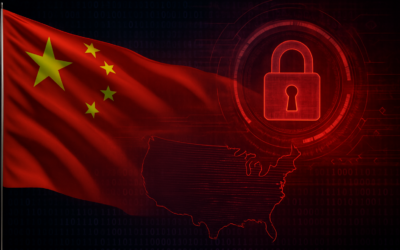Conducting a comprehensive security assessment is one of the most critical tasks for any organization seeking to protect its IT infrastructure. However, it’s a time-intensive, specialized process that many organizations struggle to execute effectively. While internal teams often have the best intentions, there are several key reasons why internal security assessments fail. In this post, we’ll explore these challenges and explain why external cybersecurity experts are essential for a thorough, accurate evaluation.
1. Limited Time and Resources
One of the biggest challenges faced by internal IT teams, and the #1 reason why internal security assessments fail, is the lack of time and resources. Most internal teams are already juggling day-to-day operations, managing troubleshooting issues, and meeting project deadlines. As a result, adding the responsibility of conducting a security assessment often leads to it being deprioritized or abandoned halfway through.
Even with the best intentions, finding uninterrupted time to conduct a comprehensive assessment can be difficult. The time constraints faced by internal teams often result in a rushed or incomplete assessment, leaving potential vulnerabilities unaddressed.
2. Misinterpretation of Security Framework Controls
Many organizations rely on security frameworks such as NIST, ISO 27001, or CIS to guide their security strategy. These frameworks provide valuable guidelines and benchmarks, but they can be complex and require expert knowledge to interpret correctly.
Internal teams, while skilled at managing daily IT operations, may not have the expertise to fully understand the nuances of these frameworks. Without proper interpretation, organizations risk non-compliance or improperly implemented security controls, which can lead to significant vulnerabilities. Misunderstanding these controls can also result in a false sense of security, where IT teams believe they are compliant when, in fact, they may be missing critical protections.
3. Blind Spots in Existing Tools and Processes
Internal teams may not always recognize the full potential of the tools and resources they already have in place. Many organizations invest heavily in security technologies but fail to fully integrate or optimize these tools, leaving critical gaps in their security posture.
For example, without a clear understanding of how to align existing tools with specific framework controls, organizations risk underutilizing their investments or duplicating efforts unnecessarily. This lack of strategic alignment can undermine the effectiveness of an organization’s security infrastructure.
4. Too Close to the Problem
When internal teams assess their own environment, they can easily become too close to the problem. Familiarity with the systems they manage can cloud their judgment, resulting in biased assessments.
This phenomenon—sometimes referred to as the “forest-for-the-trees” effect—occurs when teams overlook critical vulnerabilities or underestimate risks due to their intimate knowledge of the system. This lack of objectivity can lead to overly generous self-assessments that don’t accurately reflect the organization’s true security posture.
5. Unawareness of Advanced Assessment Tools
The field of cybersecurity is constantly evolving, and so too are the tools and techniques used to conduct accurate security assessments. Many organizations are unaware of the latest assessment tools that can enhance the effectiveness and efficiency of the process.
External cybersecurity professionals bring with them access to advanced tools such as vulnerability scanners, configuration analyzers, and automated compliance tools. These tools streamline the assessment process, identify risks faster, and provide more accurate results—helping organizations avoid costly oversights that internal teams might miss.
6. Lack of Experience Across Diverse Environments
Internal teams often possess deep knowledge of their own organization’s specific environment but may lack experience with other organizational structures or industries. Cybersecurity is a constantly changing landscape, and a broader perspective is essential to staying ahead of emerging threats.
External security experts have worked with a variety of organizations and environments, which allows them to bring unique insights and best practices from across industries. This experience enables them to identify threats and vulnerabilities that an internal team—focused only on their own systems—might overlook.
7. Gaps in Continuing Education and Certifications
The cybersecurity landscape is constantly changing, with new threats, tools, and regulations emerging regularly. Staying up-to-date on the latest trends and technologies requires continuous education through certifications like CISSP, attending cybersecurity conferences, and participating in advanced training programs.
However, internal teams often struggle to keep up with this fast-paced environment due to time constraints and resource limitations. As a result, they may lack the specialized training required to address new threats or leverage cutting-edge tools and techniques. External experts, on the other hand, are continually honing their skills and can offer the most up-to-date knowledge and practices for securing your organization’s infrastructure.
Conclusion: Why internal security assessments fail and Why External Expertise is Essential
While internal security assessments have their place, they often fall short when it comes to delivering the comprehensive, objective, and actionable insights needed to protect your organization. From limited resources to a lack of expertise and unbiased perspective, the challenges of conducting an effective assessment internally are numerous.
By partnering with external cybersecurity professionals, organizations gain access to the latest tools, methodologies, and specialized knowledge. These experts bring a fresh perspective, enabling them to identify vulnerabilities that internal teams may overlook and provide tailored recommendations that align with your organization’s unique needs and goals.
At Network Digital Security, we specialize in providing thorough, objective security assessments that uncover vulnerabilities, ensure compliance, and help you build a proactive, resilient cybersecurity strategy.
Contact us today to learn how our expert assessments can help strengthen your organization’s defenses and stay ahead of evolving cybersecurity threats.



